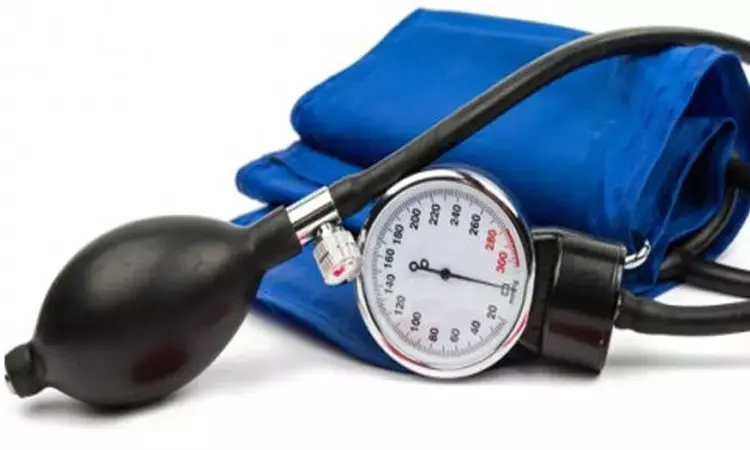- Home
- Medical news & Guidelines
- Anesthesiology
- Cardiology and CTVS
- Critical Care
- Dentistry
- Dermatology
- Diabetes and Endocrinology
- ENT
- Gastroenterology
- Medicine
- Nephrology
- Neurology
- Obstretics-Gynaecology
- Oncology
- Ophthalmology
- Orthopaedics
- Pediatrics-Neonatology
- Psychiatry
- Pulmonology
- Radiology
- Surgery
- Urology
- Laboratory Medicine
- Diet
- Nursing
- Paramedical
- Physiotherapy
- Health news
- Fact Check
- Bone Health Fact Check
- Brain Health Fact Check
- Cancer Related Fact Check
- Child Care Fact Check
- Dental and oral health fact check
- Diabetes and metabolic health fact check
- Diet and Nutrition Fact Check
- Eye and ENT Care Fact Check
- Fitness fact check
- Gut health fact check
- Heart health fact check
- Kidney health fact check
- Medical education fact check
- Men's health fact check
- Respiratory fact check
- Skin and hair care fact check
- Vaccine and Immunization fact check
- Women's health fact check
- AYUSH
- State News
- Andaman and Nicobar Islands
- Andhra Pradesh
- Arunachal Pradesh
- Assam
- Bihar
- Chandigarh
- Chattisgarh
- Dadra and Nagar Haveli
- Daman and Diu
- Delhi
- Goa
- Gujarat
- Haryana
- Himachal Pradesh
- Jammu & Kashmir
- Jharkhand
- Karnataka
- Kerala
- Ladakh
- Lakshadweep
- Madhya Pradesh
- Maharashtra
- Manipur
- Meghalaya
- Mizoram
- Nagaland
- Odisha
- Puducherry
- Punjab
- Rajasthan
- Sikkim
- Tamil Nadu
- Telangana
- Tripura
- Uttar Pradesh
- Uttrakhand
- West Bengal
- Medical Education
- Industry
24-hour BP data may not predict prognosis in children with CKD

Washington, DC --Diagnostic workup for hypertension in children may include wearing a device that monitors blood pressure over 24 hours. Blood pressure load--the proportion of elevated blood pressure readings detected over 24 hours--is used in addition to average blood pressure as part of the criteria for diagnosing hypertension in children. Elevated BP load is part of the criteria for ambulatory hypertension in pediatric guidelines.
The researchers conducted a new study to determine the prevalence of isolated BP load elevation and associated risk with adverse outcomes in children with CKD. They found that BP load does not provide additive value in discriminating outcomes when used independently or in conjunction with mean systolic BP in children with CKD. Results from the study provide insights on evaluating high blood pressure in children. The findings appear in an upcoming issue of CJASN.
Use of blood pressure load in everyday practice may lead to confusion in scenarios where a child has elevated blood pressure load but normal average blood pressure, however, and it's unclear how a high blood pressure load (with normal average blood pressure) affects long-term health.
To provide insight, Jason Lee, MD (University of California, San Francisco) and his colleagues studied 533 children with chronic kidney disease who underwent 24-hour blood pressure monitoring, along with tests related to kidney and heart health over several years. Based on 24-hour blood pressure data, the team grouped children as having normal blood pressure, high blood pressure load but without high average blood pressure, and high average blood pressure.
One-quarter of the children had a high blood pressure load. Having high blood pressure load by itself was not associated with higher risks of developing kidney failure or a condition called left ventricular hypertrophy which can develop in response to high blood pressure.
"Our data suggest that the proportion of readings on a 24-hour blood pressure test that are high may not provide additional insight beyond the average blood pressure values surrounding a child's risk for developing a cardiac disease or worsening kidney disease," said Dr. Lee. "However, having high average blood pressure on a 24-hour blood pressure test does strongly predict a child's cardiac and kidney disease risk."
For more details click on the link: http://dx.doi.org/10.2215/CJN.10130819
Dr Kartikeya Kohli is an Internal Medicine Consultant at Sitaram Bhartia Hospital in Delhi with super speciality training in Nephrology. He has worked with various eminent hospitals like Indraprastha Apollo Hospital, Sir Gangaram Hospital. He holds an MBBS from Kasturba Medical College Manipal, DNB Internal Medicine, Post Graduate Diploma in Clinical Research and Business Development, Fellow DNB Nephrology, MRCP and ECFMG Certification. He has been closely associated with India Medical Association South Delhi Branch and Delhi Medical Association and has been organising continuing medical education programs on their behalf from time to time. Further he has been contributing medical articles for their newsletters as well. He is also associated with electronic media and TV for conduction and presentation of health programs. He has been associated with Medical Dialogues for last 3 years and contributing articles on regular basis.
Dr Kamal Kant Kohli-MBBS, DTCD- a chest specialist with more than 30 years of practice and a flair for writing clinical articles, Dr Kamal Kant Kohli joined Medical Dialogues as a Chief Editor of Medical News. Besides writing articles, as an editor, he proofreads and verifies all the medical content published on Medical Dialogues including those coming from journals, studies,medical conferences,guidelines etc. Email: drkohli@medicaldialogues.in. Contact no. 011-43720751


